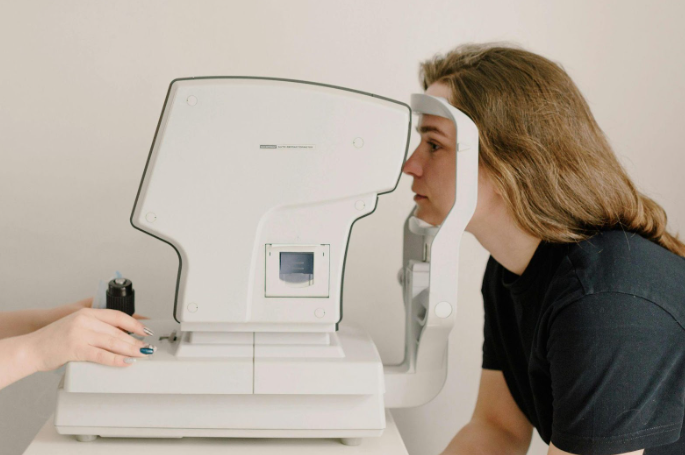Ask An Ophthalmologist: What Are The Different Types Of Macular Degeneration?
 Macular degeneration is a relatively common condition that results in the loss of central vision. This means that when you’re looking directly at an object, whether near or far, your vision will be blurry and you won’t be able to see details. However, your peripheral vision is not affected.
Macular degeneration is a relatively common condition that results in the loss of central vision. This means that when you’re looking directly at an object, whether near or far, your vision will be blurry and you won’t be able to see details. However, your peripheral vision is not affected.
The macula is the small center portion of the retina that’s responsible for central vision. Macular degeneration is related to aging, but family history also a risk factor. The condition is also referred to as age-related macular degeneration, or AMD, and there are two types, dry and wet.
Dry AMD
Approximately 80% of people with AMD have what’s known as dry macular degeneration. Dry AMD develops when parts of the macula get thinner with age and tiny clumps of protein form on the macula. Currently, the only treatment for dry AMD is a cocktail of antioxidant vitamins. This treatment can slow the progression of the disease.
Wet AMD
The less common but more serious form of macular degeneration is called wet AMD. This type of AMD occurs when abnormal blood vessels grow under the retina. These blood vessels may leak, which causes scarring of the macula. Vision loss occurs more quickly with wet AMD than with dry AMD.
Symptoms & Treatment
Many people don’t realize they have AMD until their vision has become blurry, which is why it’s crucial to have annual visits to an ophthalmologist to check for early signs of thinning of the macula or development of blood vessels under the retina. You have an increased risk of developing AMD if you:
- Have a family history of macular degeneration
- Are over 50
- Are overweight
- Have high cholesterol
- Have high blood pressure
- Are diabetic
- Smoke cigarettes
- Are Caucasian
While there is no treatment to improve dry AMD, your ophthalmologist may recommend steps you can take to slow the progression of the disease. Wet AMD may be treated with medications called anti-VEGF drugs or with laser procedures.
The most important factor to slowing vision loss from macular degeneration is to have the disease diagnosed as early as possible. If you are over age 50, or have blurry vision, or have any of the risk factors listed above, schedule a consultation with an eye doctor at Baptist Eye Surgeons.
Baptist Eye Surgeons is an ophthalmological practice in Knoxville, TN, and Morristown, TN, dedicated to providing quality eye care to patients whose needs range from routine comprehensive eye examinations to complex eye surgeries. To meet our doctors and learn more about our specialities, visit our website or give us a call at 865-579-3920 for more information or to schedule an appointment.





